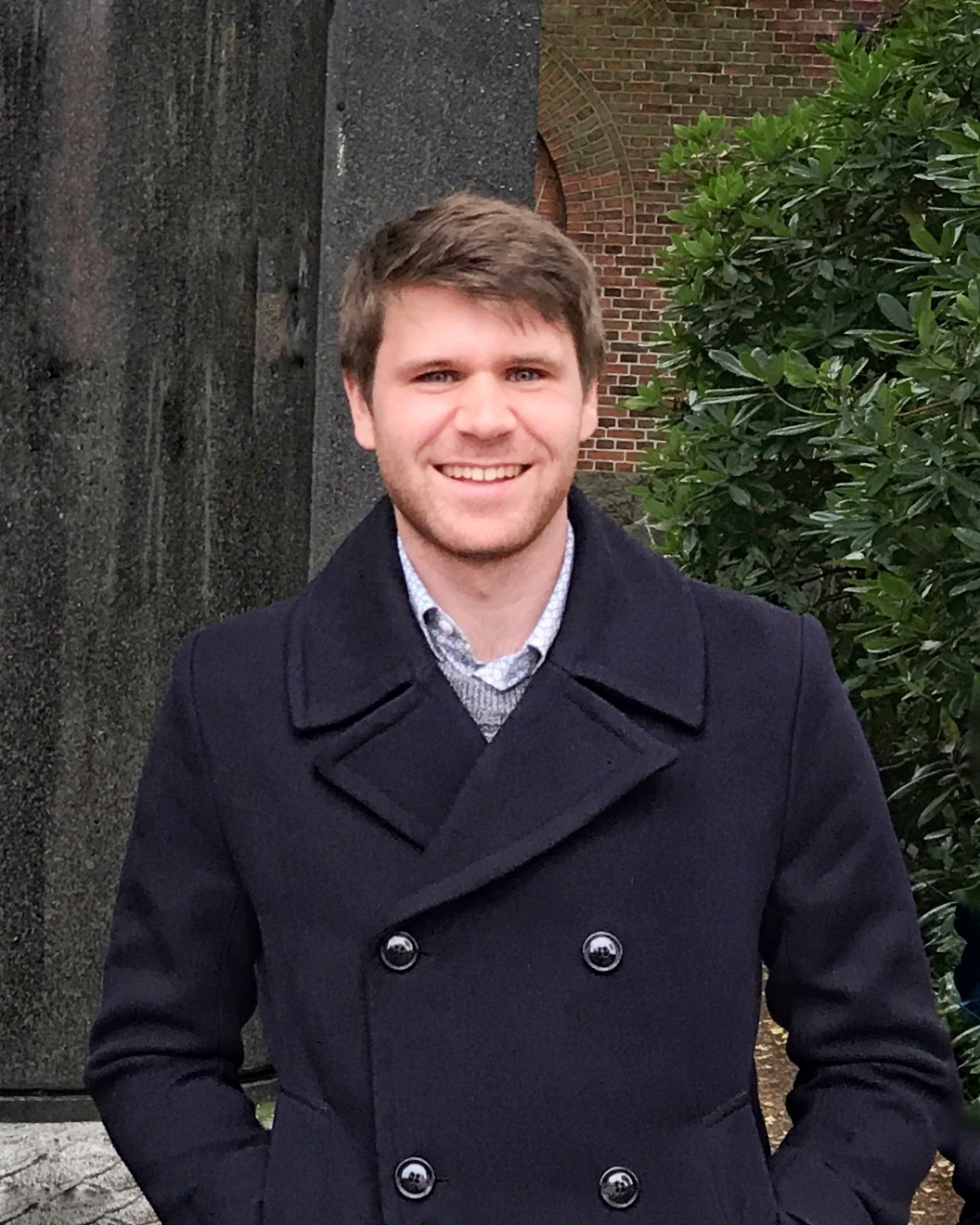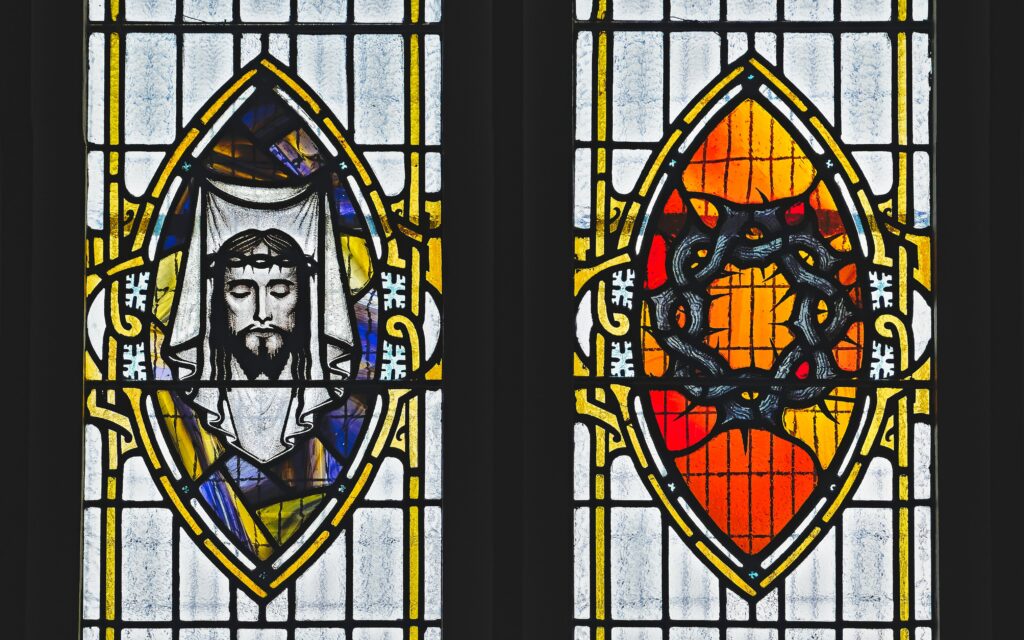Love in Action – Inclusion & Belonging w/ Elizabeth Mullins
Welcome to the GC Podcast, a podcast to help you develop into the healthiest ministry leader you can be by sharing practical ministry experience. Here are your hosts, Cara Garrity and Charissa Panuve.
Cara: Hello everyone, and welcome to GC Podcast. I am so happy to introduce you to my co-host for this quarter, Charissa Panuve. Charissa is a GCI member in the Fiji church, and she’s currently based in Thailand because she is a swimmer, and she is full time training for the Olympics while in Thailand. So, she is awesome in that way. And in her GCI congregation, she enjoys youth get-togethers, fellowshipping within the church and sharing with each other both joys as well as burdens.
I’m so happy, Charissa, to welcome you as my co-host on the podcast for this quarter. Thank you so much for being here with us.
Charissa: Hi everyone. And hi, Cara. So grateful for the opportunity to be here and co-host alongside you. I’m so excited to get into it.
Cara: Absolutely. So why don’t we just jump on in then. In this episode for today, we’re going to be exploring, with Elizabeth Mullins, our guests, what role inclusion and belonging plays in the mission and witness of the Love Avenue.
So, Charissa, when you think about belonging, what comes to mind for you?
Charissa: Hmm, well, I feel like belonging is about comfortability and inclusion. And there are different factors that come to play to feel that, or feel those things, which are attitude of people around you and the environment you’re in. To me, I feel that actions speak louder than words.
So actively being there for people and their needs, I think helps them feel included. And just when you’re not feeling like you’re being judged, you feel comfortable. And I think that helps you feel like you belong.
Cara: Yeah. I really like that point that you make that actions are louder than words when it comes to belonging. So, thank you for sharing that. Let’s go ahead and listen to what Elizabeth Mullins has to share in our interview.
Cara: Hello friends and welcome to today’s episode of GC Podcast. This podcast is devoted to exploring best ministry practices in the context of Grace Communion International churches. I’m your host Cara Garrity. And today I am overjoyed to interview Elizabeth Mullins, who is a GCI elder, and works with the media team as Publications Coordinator.
Thank you so much for being here with us today, Elizabeth.
Elizabeth: Oh, thanks for having me. I’m pretty fond of you. So, this is going to be fun!
Cara: Oh, it is going to be a lot of fun and especially today, we’re going to be exploring what inclusion and belonging have to do with the ministry of the Love Avenue. And so, I’m really excited for that.
So, let’s just jump right on in and start there. What does creating an inclusive community have to do with the ministry of the Love Avenue?
Elizabeth: Everything. Right? Our desire [is] for others to experience belonging with us, particularly in the Love Avenue — so ultimately Jesus is the one making the invitation, and he’s invited all. So that’s why inclusion matters.
Are we done? Is this shortest podcast ever?
Cara: We could be done right there.
Elizabeth: That’s a lot.
But seriously, what are we even talking about when we say the word inclusion? I think in GCI, we have this good practice of walking the “what” question back to the “who” question. So, who are people included into? We’re included into the life of the triune God. And I know that our listeners know this; I believe that we believe this.
So, then the question becomes, how do we reflect that? How can I welcome in new people? How can I gather with new people whose lived experiences might not look anything like my own and still communicate to that person that you belong, and you’re called into the body. And what in the world does that even look like?
Cara, when you ask me to do this podcast I had doubts, and I told you, I’m not an expert. But I do look forward to wrestling with this topic with you today. I feel like I have more questions about inclusion than I have answers, but if this conversation increases our awe and wonder for an inclusive God, then I think it’ll be good.
Cara: Amen. And there’s something about that posture, Elizabeth, that I think is part of that holy mystery of being the church — Jesus’ church in the world, that sometimes we have more questions than answers, right? But it doesn’t rest on us. As you said, Jesus is the one that’s choosing and it’s in him that we’re included in the life of the Father, Son, and Spirit.
And so, at the end of the day, it’s not that we need these nice clean-cut answers to what an inclusive community, what belonging really even means and looks like, but it’s how are we participating in the belonging that God has already created? And how are we allowing him to bring us deeper into that in real, tangible ways? Like we’re putting flesh on our theology, making it real incarnational, in that sense. Absolutely.
And what you were saying this idea of, we believe this, and we believe the who we’re included in. So, what does that actually mean? What does that look like? Let’s start with, what do you believe some characteristics of inclusion and belonging are?
Elizabeth: First, I just want to back up for a second and say that I appreciate what you just said about putting flesh on it. It does seem like we could talk about belonging, we could talk about inclusion all day, but it has to be experienced. And I was just saying to someone recently that community is like this giant learning lab.
Cara: Yes!
Elizabeth: Yeah. But what are some characteristics of inclusivity? I hope you’ll be patient with me because this first thought that I had might be more abstract than you intended, but I trust that as we keep going, we’re going to get more concrete, more specific.
But the first thought that I had actually speaks to motivation. And I don’t know if some of our listeners are like me, but a lot of times I’m not interested in a bunch of how-tos until you’ve convinced me of the why. So, for me, an important characteristic is witness.
Something I’ve been wrestling with is that inclusion is actually my calling. That if we’re part of the body of Christ, if we are part of the Church, that we’re called to bear witness to this reality of belonging. And it’s not always visible. It’s not always visible to other people. So, we witness to that.
There’s a quote I heard years ago that I love, and I’m embarrassed that I don’t know who said it. I even tried to look it up, but I can’t find it. So, I apologize; I can’t source it. But it says, “The Church is the visible manifestation of the invisible reality of the kingdom.”
Isn’t that good?
Cara: That’s real good. Yeah.
Elizabeth: Yeah. So, if the gathering church is the thin place where the veil is pulled back, that’s a responsibility to bear that witness to people that they are included in the triune God. Colossians 1:15 says that the Son is the visible representation of an invisible God. And not that — we’re not God to anybody. Right? We are not Jesus to people! Because we’re all setting aside that savior complex, right?
Cara: Yes. Amen.
Elizabeth: Or trying to. But aren’t we called to participate in that reality? And I’m convinced that participation holds this kind of holy tension — the way that so much of our Christian life is a paradox, the way that a paradox is two seemingly opposite things but can both be true, like the already not yet.
And I believe that discipleship asks us to live into that tension of paradox. And that paradox says: because there’s a calling on my life, I do have a responsibility to live into participation with Christ, that I have a responsibility to witness and gather his Body, and yet, I’m not responsible for the outcome.
The Spirit does a really fine job of convicting people. But man! Whew, holding that tension? It’s difficult sometimes.
Cara: I was just going to comment on what you’re saying. I think what you’ve named is so, so important for a couple of reasons. First, getting to this, why is this even important?
It’s not just, we want sunshine and rainbows version of church, where we’re talking about an inclusivity of “can’t we all just get along? Can’t we all just have fun together and hold hands in a circle?” That’s not what we’re talking about. What we’re talking about I think you’ve gotten right to the heart of, that when we talk about the church, the people of God, the kind of inclusion that we are called to, it’s because of who God is and who we are as the church, the God and his kingdom that we’re witnessing to.
He’s the one doing the including. It’s his kingdom that’s an inclusive kingdom; we’re just participating in it. And so, it’s not just because we think it would be better if everyone [could] just get along, we think it would be easier if there wasn’t just — whatever, or if anyone could just show up and walk in through the doors. It’s like you said, there is a responsibility because of who our God is, because of how he works, because of his ways, because of the kingdom that he is bringing at hand and will establish for all of eternity.
And so, what you name about even sitting in the paradox of that. We do get called into participating and then also hold loosely that we’re not responsible for those results. So, we don’t want to fall into that trap of it either. But we don’t let ourselves off the hook for taking seriously. If we are taking seriously that our God is who he says he is, and we’re witnessing to a God who has included all people, wouldn’t we bear witness to that and make that a little bit more tangible, make that a little bit more experienced here on earth, on this side of eternity?
I think that’s so important because like you said, before we even get to the how-tos — why? Why should we care? And we should care because God has showed us that he cares.
So that’s yeah, that’s really good. Thank you for naming that for us, Elizabeth. And you can go on. What else were you going to say about some characteristics of inclusivity?
Elizabeth: Yeah. Thank you for your thoughts. I love that phrase of holding loosely, and I think that’s an important characteristic. And it lends to what I was going to say next.
Because it can be difficult to hold loosely and to live in that tension, I believe another important characteristic is courage. Because we will have fear, but we can face our fear with courage because what does the testimony of the Bible tell us? What can separate us from the love of Christ? What can threaten our inclusion in this membership — our full membership as God’s children? Nothing! If our full membership is contingent on Christ and his finished work, then that should fill us with courage and hope. And lead us to ask the next question, which is okay, how do we image this in community now?
Ultimately, we’re not the gatekeepers, right? We’re not the gatekeepers of Jesus’ kingdom. And I think it takes courage to really live into the fact that inclusion doesn’t mean assimilation. It’s not equal to total agreement or uniformity. But we can still communicate inclusion.
I think it’s like holding up a mirror to other people and saying, “You are loved, you’re worthy of belonging. You’re an image bearer.” And calling them up. Because I really think it does call people up to say, “You know what? You are able to receive love and to give love. This is your true self.”
And so, I’m just learning to remember that it’s my calling to witness to this inclusion, and that it’s going to require courage.
Cara: Yes. And I really like that word. That word that you use of gatekeeping just really struck me because if we’re talking about inclusion, as based in, as accomplished in, as given to us and fulfilled in Jesus, we actually aren’t the ones — we don’t create inclusion — God is the one creating and gifting this inclusion to us.
And so really at the end of the day, it’s just responding to that reality of inclusion that we’re invited to, participating in that. And so, I like that image that you evoked of gatekeeping because when we’re not participating in inclusion, it’s not like that inclusion doesn’t already exist in Christ! But we can, as communities of gathering, act as gatekeepers to others experiencing this reality — that we know and should be actually proclaiming and witnessing to rather than gatekeeping.
But it’s not that we create the inclusion or not, because Christ has already done that for us. And so, I think that’s a powerful word to think about. Are we gatekeeping others’ experience of Christ and his kingdom?
As I think about what you talked about with the need to have courage in participating in inclusion as a community and mirroring that, I wonder what other mindsets or habits, ways of thinking or behaving we are invited to surrender to God as we learn to be a more inclusive community?
Elizabeth: For me, this is another question that I feel like addresses spiritual formation and discipleship. Because as Christians, shouldn’t we of all people be open and curious and humble? Aren’t we supposed to be repentant people and eager to learn? But we’re not always. I know I’m not! So, I’m trying to learn to surrender arrogance and certainty by allowing the Spirit to disciple and form me into humility and curiosity and repentance.
I’m not sure that we can discuss inclusion without mentioning bias. And in a lot of the conversations that I have heard around bias, I’ve heard that people will have a fundamental question and that’s, am I good? If they’re pushing back, it’s like they’re thinking consciously or unconsciously, “If you say I have bias, am I still good?”
And to me, as Christians, as people who are being conformed to a God that condescends, I feel like the answer should be: well, of course we’re bent towards sin! It’s a malformation when I cannot hold the tension that: no, I’m not always good, my actions are not always good, but I am loved. I am valued and I belong.
Those things aren’t mutually exclusive. And my beloved-ness, my valued-ness, it should birth shalom. It should birth a desire for my flourishing to spread out to other people. It should not birth narcissism: “I’m special.” No. I think it can birth narcissism if it’s not rooted and centered in this story that we embrace that God is a God who defeats evil by self-giving love. He didn’t defeat evil by putting up more walls, by trying to put up walls to exclude. He destroyed the dividing wall of hostility between us and God and between each other.
Yeah, I just am learning that everybody carries a story that I don’t know. And their stories carry much more complexity and more pain and more beauty than I can possibly know. So, it takes me surrendering that I know it all and that I can control everything.
Cara: Yeah. I really like that. It’s a simple, but really challenging, thing to remember just that everyone has their own story that they carry. But what would it look like if we remember that and see that in the context of God’s larger story with all of humanity, and just allow that to be — even when we don’t understand — allow that to be enough, that we’re all part of God’s larger story, rather than, I think you said that word control.
And I think that can be a big part of when we struggle with creating spaces of belonging, when we don’t understand, or we want to control things, or we feel out of control because we don’t understand. But what if it was just enough that all of our unique individual stories really were part of God’s larger story with humanity, whether we understood it or not, because he’s the one that’s writing the story of belonging. I don’t know. Because coming back to what you were saying, we’re giving up the savior complex. What would that look like if we let God kind be in charge of that? I don’t know.
Elizabeth: Yeah, that’s good. Yeah. I like you using the word understanding. I so often use the word certainty, but that’s good. We can love somebody without understanding everything that’s going on with them.
Cara: Yes. And I think sometimes when we think about, especially in a community context and creating practices as a community of inclusion and belonging, a lot of times it is, in my experience, it’s been that barrier of understanding. Because we don’t understand something, then we feel threatened.
We don’t know what’s going on so we don’t know what might happen, or we don’t understand this particular life experience. So, it’s safer to be in a comfortable bubble than to be courageous, like you said, to witness to the fact that whether we understand or not, we all have belonging in Christ. Whether we understand or not, God is in our midst. Whether we understand or not, he is drawing us all into his love and his kingdom and conforming us into his image as we’re always meant to be.
So, it’s more the question of — less of, do we understand, and do we feel a little scared? But [it’s] more: are we going to participate in and what God is doing right here and now? Whether we understand with our temporal minds what’s going on or not. I think we can get tripped up over understanding and needing to feel like we can be in in control.
And that’s something that I’ve seen and experience that’s part of that surrendering. And like you said, coming back to spiritual formation, are we allowing ourselves to be formed by God to actually surrender to God? And like you said, to admit maybe we are bent towards sin.
Maybe that is kind of why he came to be one of us and to walk amongst us and to give us a new humanity. And so maybe it is okay to trust him with those parts of ourselves that are ugly. And maybe say, oh, because I don’t understand this person, or I feel a little bit threatened, I don’t want to be near them, [but] maybe our God is understanding enough, caring enough, loving enough.
Maybe he gets it enough that we can trust him with that part of ourselves and say, could you do something with this? Because I know it’s not your desire and your heart for me, you’ve made that clear, but the reality is this is where I’m at. And I think that he’s a God that is so happy and so willing to transform his people into the wholeness and the new humanity that he’s always intended for us. But if we’re stubborn and say, “Oh no, we could never think that way, we’re not sinful people,” I think we miss out a little bit on that beautiful opportunity to be transformed by him in community with others.
Elizabeth: Yeah. So true.
Cara: And I think about that and being transformed in community with others as ministry leaders, sometimes we have a particular influence on the tone of a community or the tone that sets. So, what are some ways, Elizabeth, that you’ve had to learn to be more inclusive, particularly as a leader in ministry?
Elizabeth: I have to admit (speaking of what you just said about turning with confidence that Jesus isn’t shocked by anything), I don’t always lean into community. I am sometimes plagued by feelings of not feeling like I’m worthy of love and belonging, of not having enough courage to trust.
So, I’m learning myself as a leader that, I can’t be asking people to lean into community if I’m not doing that. And as I do that, I do see that we can be made for belonging. It can be our true selves, our birthright, and we can really long for connection, which I think is what we’re really talking about here is the connection and the healing that we experience in relationship. But I’m learning that just because we long for connection, it doesn’t mean we always know what to do with it once we find it or get it.
Cara: Yes.
Elizabeth: Proximity in a gathering is not enough. It’s not like it’s this chemical reaction, just add a little vinegar to baking soda and voila. We can gather together but it doesn’t always mean there’s going to be instant connection or that we’re going to experience intimacy and trust, which I think is ultimately what we’re hoping for is — I believe Jesus when he says that we’re better together and that he is going to conform us to his image. And the Body is one of the ways that happens.
But I am learning as a leader that so many of us, we did not have attuned, empathetic caregivers when we were growing up. We simply did not learn healthy connection developmentally. Like I said, I have a lot of questions, but one thing I think I’m convinced of: that it’s a skillset we can learn, that we are being transformed by Jesus’ presence, and that the Holy Spirit is tutoring us to be other-centered.
So, for me, part of becoming a healthy leader is taking stock of my own trauma and the areas where I’m identifying that I lack emotional intelligence, and maybe that means seeking out therapy.
But am I able to identify my own trauma and my own hurts? Do I even know how to identify my own emotions so that I can observe and identify it in other people? I think that’s important for place-sharing. Can I sit in the discomfort of another person’s pain without feeling like I have to fix it or run from it or make a joke. And I’m going to have a really difficult time of doing that, of place-sharing, if I haven’t owned my own pain.
I also believe that a new person’s question will be, whether consciously or unconsciously, am I too much? If we’re sitting with another person in their emotions, whether it’s joy or whether it’s sadness, how are we answering that question of am I too much?
I believe that discipleship has this beautiful circular quality, that I am being formed through the solitary. I am being tutored by the Spirit. I am being changed by Jesus’ presence, but I’m also being formed by the collective.
I want to read a quote from Cole Arthur Riley in her book This Here Flesh that I think really speaks to that concept. And she says, “We’re made for belonging and maybe you’ve heard it said that you need to learn how to be alone before you can be with someone. But I say, you have to learn how to be with and part of something in order to know how to be alone. I think it’s only in a deep anchoring in community that one can ever be free to explore the solitary.”
So yeah, I’m trying to learn that the Spirit disciples me in and through community.
Cara: Yeah. And I love that. Just thinking even about that question of, am I too much? So as whether ministry leaders or just members of a gathering church community, part of creating spaces of belonging, is there actually space for us to exist with one another?
And if we’re not tutored and practicing, as you’re speaking to, of just existing alongside one another, then can we feel like we belong? Can we feel like there’s enough space for us if we’re always feeling like we’re bumping up against maybe someone’s discomfort with how I’m feeling right now or things? So that ability to grow and to learn ourselves in community.
Yeah. That’s not something I would’ve thought of, but I really appreciate that you bring that up because how we move through a space and how we even understand and know and are familiar with how we are moving through a space does impact, right? We are communal beings. We are created for connection.
It impacts how that space is received by other people or whether people can be received into that space. And I’m sure we’ve all felt that too, when maybe we’ve felt too much for other people because there just wasn’t enough space for us to belong and just exist in that moment.
And so, I think that you’ve named a really important way, but maybe not right off the bat obvious way, that we as ministry leaders and members of the gathering church community can be intentional about learning and practicing to be more inclusive people, people of belonging.
That’s excellent. So, as you’re journeying in developing what belonging, what inclusion, what these rhythms and practices looks like, how are you learning to share what you’re learning and how you’re growing with the gathering church community so that we can maybe I’ll start to grow a little bit more together?
Elizabeth: Yeah. I feel like this is the question where we — where I can start getting a little more concrete. But I am chewing on what you just said. So, I just want to pause for a minute. I appreciate the affirmation from you because I wasn’t sure that, as I was wrestling through this, if it’s too abstract, too ethereal.
But it came to me as you were speaking back what I was saying and mirroring it to me, that we can make sure that we have representation in our images. We can make sure we have a wheelchair ramp, that we are using microphones for hearing impairment. We can do a lot of things to be welcoming in our gathering, just kind of surface welcoming. But I really think that the healing that we’re promised and that we can participate in, it does come from these deep connections that we make, the way that we bear the image of God to one another and the way that we just reflect his acceptance and his love.
I think you could actually have a lot of concrete things in place and have somebody attend and still not feel seen or feel connection.
Cara: Yeah. And as you were saying that, that’s exactly what I was thinking of. We can have, as community, a lot of accommodations that might seem inclusive and maybe they are tangible actions of inclusion, but without that relational aspect, are we going to fall short of true belonging?
Because, for example, if you have a ramp for somebody with a physical challenge who can’t walk up the steps or something, so they can get into your church building, but then everyone’s too uncomfortable to look them in the eye and greet them because their disability makes them uncomfortable. Yes, your building is accessible, but are they going to feel belonging?
Elizabeth: Exactly. Yeah.
Cara: And yeah, I think what you’ve named is, that’s the real — that’s where the church comes in and I think can mirror the belonging of the kingdom versus just the accessibility that is like pretty standard in a lot of places in the world. Right?
But I think this is where we’re called to that higher calling of the belonging that we find and can participate in God versus just like some architectural feats, as you were saying, so you can get in the building without being seen. I think you’re right about that.
Elizabeth: So, to your question, back to your question.
Cara: We’re both like, woo!
Elizabeth: I think this sort of gets to both. Maybe it straddles the fence of we’re talking about connection, but hopefully, I was trying to think of some tangible things. I like that you use that word tangible. We’re recording this in August and the podcast won’t be published till October, but I had recently helped work on a Church Hack that we can put in the show notes. It’s not official, but as I was working on it, I jokingly to myself was titling it, Don’t be weird.
I have to explain, give the whole backstory for why I landed on that word, weird. At least for myself, I know that words can be loaded, and they can carry different meaning for different people. When my husband, Anthony and I were replanting or relaunching a congregation in Hickory, my mantra for that fellowship when we would be talking about welcoming guests and welcoming in new people to our gathering, I was constantly saying, we’re going to eliminate the awkward. But I’ve actually had to repent and rethink that phrase because I was thinking about it — can getting to know a new person feel awkward and uncomfortable? Absolutely! It can.
When I say weird, I guess I’m thinking more of behavior that’s not going to be received as courteous. In the U.S., we use the word weird as this fun, loving way to mean unique or eccentric, like “Keep Austin Weird” [a city’s motto]. So, I don’t mean that. I don’t mean unique and eccentric. All of you people out there being unique and eccentric, you just keep trucking on.
So no, but I think of it this way. Cara, have you ever had an encounter that left you feeling uneasy or confused and afterwards you turn to a friend, and you just say, that was weird!
Cara: Yes. That kind of weird
Elizabeth: Yeah, I think we’ve all had that.
We’re trying to connect with somebody, and we’re missing each other. We’re always going to miss each other a little bit but like in a way that you’re just left feeling like, that was weird.
Many of our GCI leaders have been through the GiANT CORE training. And that’s an important part of that training, remember, was to ask the question, what is it like to be on the other side of me?
One of the ways that I’m learning — I’m really trying to answer this question. I’m learning to share about inclusion is learning self-awareness. So, when we’re getting to know new people, when we’re welcoming guests, we do want to eliminate the weird, as far as behavior that’s rude or specifically behavior that’s self-centered.
I think our gatherings can feel weird if there’s a lot of ambiguity and chaos, and we definitely don’t want to be coercive to people. And I think we can be received that way, if we over talk, if we’re doing all the talking or we’re asking intrusive questions.
My favorite question for new people when they’re talking to me, is to say something like, oh, that sounds wonderful. Or (maybe it’s awful) that sounds awful. Would you like to tell me more about that? So, then the ball is in their court. They can take the lead if they want to tell me more or if they don’t.
I also think, like we were talking about tension in the paradox of calling but holding loosely to the outcome, I think hospitality invites us to lean into tension also. And I think in pictures and thinking about hospitality, I imagine this like a sliding scale. And if on the far side, on the far-left side, imagine that as comfort. And you could just picture a member of the existing community that they know they belong. So, on the left side, you’ve got comfort and “I know I belong.”
And then clear on the other side of the scale, on the right side, you’ve got discomfort and “I don’t know if I belong here; I don’t know if I can belong here.” And to me, hospitality looks like if I’m over there on the left side of comfort, can I move towards the other person’s discomfort? Can I have the space to hold their discomfort and my discomfort for a little while? Just so I can join them there in order to bring them along, back over to the left, into comfort.
Cara: That’s a good visual.
Elizabeth: Yeah. So, meeting new people can feel uncertain, especially when we make an idol out of being in control. Including people can feel uncomfortable and awkward, but I think that we can embrace that tension for the other person’s good.
Cara: Yeah. When you bring up that word weird and avoiding that, let’s not be weird. I think about that idea of when you’re at the dinner table with your best friends or whatever, you behave a certain way, in a way you maybe might not to a stranger. I think our churches can sometimes be like that.
When in our gathering church community, we do become way on that left side, so comfortable with each other. We know that we belong, we become this inward facing, inward circle. But isn’t it kind of weird when somebody new, when a stranger accidentally gets caught up in that, and they don’t know what’s going on or they don’t know what to expect. They don’t know what those inside jokes mean. They don’t really know if they’re even supposed to be there.
I think that’s that kind of weird that you’re talking about where, when we’re thinking about the Love Avenue and witnessing and being engaged in the ministry of Jesus’ mission, we don’t want to be so — some different phrases for it are closed set or inward thinking. Where it’s just about me and my table with my group of best friends that we have all our inside jokes. And it’s really weird if a stranger comes up and we don’t actually welcome them in a way that is reasonable because we’re still acting like it’s just us at the table.
And so, I think that in our churches, we can sometimes be like that. Because we’re family and that’s great. But sometimes family has guests over for dinner, and you probably should act right so that guest feel welcomed instead of overwhelmed a little bit. And that’s where I think you’re saying that hospitality comes in: how do you bring them into the family versus let them feel ostracized, because they don’t know what’s going on in that family dynamic or environment?
Elizabeth: Yeah. That’s a good example. And how often, after you’ve eased somebody into your inside jokes, they do become family or a close friend? But while you’re in that getting-to-know phase, you’re going to be other-centered for them.
Cara: Yes. And that idea of other-centeredness, I think, is really key that we warm ourselves up to that. It’s okay to think about others for a little bit and building spaces of belonging and thinking about how does that get embedded in the rhythm and the fabric of our gathering church communities.
And as we’re getting closer to wrapping up our time, just quickly, I know that we’ve been talking about some really great stuff. And I think that it’s really important in how we witness to who our God is. And it’s also challenging. We’ve talked a little bit to that.
And so just what are some challenges that you could name of building rhythms of an inclusive community that you just want to name so that we’re maybe aware of and can be prepared for when we encountered them on the journey?
Elizabeth: Yeah, I think we could do an entire podcast on this but for sake of the listener’s time, I will just drop these in here.
I think a big challenge to an inclusive community is that the existing community will likely have to make some changes. For new people, we will have to make some accommodations for people to feel like they belong. And honestly the opposite of that — can we just name it? That’s cultish. That’s when a church feels like a private social club, when the new members are expected to make all the accommodations to belong. That’s actually cultish.
Cara: Very closed, yeah.
Elizabeth: I think if you’re going to have, if an inclusive community is an important value for you, your church is not going to look like a monolith. It’s not going to be homogenous, but we can honor the image of God in other people without full agreement.
We can say, I see God in you. I value your belonging without full uniformity and assimilation. And it also challenges us that we’ve got to separate behavior from belonging. Do I know what this looks like? No! This is the stuff, as we were saying.
But I honestly do believe that we can hold up a mirror to people, that it does call people up to say, “Look, you’re included in this community where we participate in Jesus’ healing. And because he’s healing us, we don’t harm ourselves or other people.” And then we trust the Spirit’s work in their life.
Cara: Yeah.
Elizabeth: Is that close?
Cara: Yeah, no. And that is the stuff, like you’re saying, that’s the hard, messy. What is it you said earlier — the lab of community? It’s not cut and dry, but it’s good and sacred work.
Yeah. What are some of the risks? If we don’t meet these challenges of nurturing inclusive community, what’s at stake?
Elizabeth: That the people we encounter won’t see that they’re being called into the Body too. This is huge. If the gathering church promises connection and inclusion and healing and — not if, I mean it does. But if what other people have experienced is rejection and exclusion and harm, then gathering is going to feel pretty terrifying to them. So why would we put up additional obstacles?
And this formation that occurs in his Body, it counters that narrative of shame and isolation. And that’s the biblical testimony that our belonging to the Body of Christ is healing, and we really are better together.
Cara: Yeah.
And it’s almost — and I’m hesitant to say these words. So, I want to bring us back to what you mentioned about this paradox of tension, that we’re invited into the responsibility of participation, but we don’t shoulder the responsibility of results. But it almost seems, after our conversation today that in some way, what’s at stake is the witness of the Church.
Because if we’re not living as the Church witnessing to the belonging of God’s people, what are we witnessing to, right? Who are we witnessing to? And so, I say that not to — and the reason I hesitate is it’s not in a scary way of, “Oh, now we got to hurry up and get our witness, get our act together.”
But to say, this is not just a cute, little ministry hack. This is how. Are we faithfully responding to what God is doing in our midst and who he is?
Elizabeth: Mmhmm. Years ago, I used to love a Christian artist named Jennifer Knapp. And one of her songs that I loved was like an allegory about the bride of Christ. And there was a line in there that said, how dare you say that she’s broken and used. [Guest used a paraphrase. See show notes for more info.]
And that makes me emotional just saying it, but it came to mind with what you were saying — is that the church is his spotless Bride, and he adores her. Jesus thinks she’s beautiful. So, man, we got to participate in that beauty!
Cara: Yeah. And it’s a wonderful thing. It’s a wonderful thing, as messy as it is, as we’re learning, it’s a beautiful thing.
In our last few minutes, I do want to give us the opportunity to get maybe even more practical about what this can mean in the day-to-day living of the church body. And I do want to name too, that we, on this side of eternity, we have limits, we have temporal limits individually, collectively.
And so, there is discernment that is important when we’re part of building what inclusivity, what belonging looks like for each particular gathering church community. For example, I have particular limitations by the languages that I speak at this current place and time. And that’s just a reality on this side of eternity.
But given that kind of context, what are some ways — let’s just brainstorm quickly before the end of our time together, what are some examples of ways that the gathering church can think of, can take seriously removing barriers to become more inclusive to God’s people?
Elizabeth: I like what you said, because we can’t be all things to all people. Because actually that’s what we were saying about if you get underneath inclusion, it’s really about the connection. If you can’t connect? And Heber Ticas has done such a great job in helping us see the difference between missional and missionary. And if there’s no commonality, then you’re probably being a missionary.
There are things that we unintentionally, barriers we unintentionally erect particularly for folks with disabilities. We have a church hack on accessibility, and we can link that and then show notes here.
Here’s what I want to say too, about what we can do. And I hope this is concrete.
Cara: Go for it.
Elizabeth: I feel like another question a new person is going to be asking consciously or unconsciously is, am I too different?
So, we’ve really got to think about how we’re answering that question. Because we can say with our mouths and with our signs, all are welcome, but what are others experiencing with us?
Because we do experience belonging in our bodies. We want to be fully seen and fully loved. We want to show up with our full selves and the incarnation teaches us that our embodied experiences matter. Therefore, we do see, we see race, we see gender, we see disability, we see family and marital status.
We can acknowledge the differences. And because the society elevates certain identities over others — it just does. We see able-bodied, married, educated, folks without intellectual disabilities, folks that aren’t neurodiverse, elevated all the time. So, we have to, I think as a church we have to ask, are we elevating certain people groups? Or do we have a diversity in the images that we use and in our leadership? If only one type of person is being represented, who might be erased? Who’s being erased by this?
I think our language matters, just to give a few examples. I have been in far too many settings where multiple people use the phrase elders’ wives. So, who’s erased by that. We have elders that are unmarried. We have elder that have husbands. I’ve been in church settings where people prayed for a particular political candidate, because there was an assumption that everybody there must be voting for the same person And that’s getting back to that assumption of uniformity.
I have witnessed messages and prayers for someone to have children or praying for someone to find a spouse. And that’s making an assumption that they want to have children or that they want to get married. I’ve been in a setting where the speaker said, in speaking about what our priorities should be, they said it should be God first, spouse second, and then your ministry work. And I just think we don’t stop to think about who’s erased by that. What about the people who don’t have a spouse?
Because here’s the thing about uniformity. We shouldn’t expect uniformity, but we should assume that we all have the same needs. And by that, I mean, what does it mean to be human? And it’s safe to say that we’re dehumanizing another if we fail to recognize that they have all the universal needs that all humans have. So, it made me feel like when I heard that statement that — I wish that speaker had said, God, then important relationships, then your ministry or something like that. Because [otherwise] it makes the assumption that people who aren’t married don’t have the same need for community and connection. They do. Everybody has! Assume we all have the same needs for that kind of connection and community.
Cara: And when you think about in, and even those examples you’ve given, when we think about communities of belonging, if you were to put yourself in the shoes of somebody who didn’t fit the assumed criteria or life circumstance, then there’s this uncomfortability that you can imagine you may experience of, oh, then is this space for me if this is what is assumed? Do I actually belong here?
And so, it’s those ways that we actually undercut belonging through our language and the assumed status quo or uniformity because casual language that we might use, it sends a signal. “Oh, this is what the expectation or the standard.” And then if you don’t meet that, “Oh do I actually belong here? Is this space for me?” And not just, “Is this space for me?” But it can even be as serious as, “Is this good news for somebody like me? Is Jesus for somebody like me?”
Elizabeth: Yes. And that’s huge. Isn’t it?
Cara: Yeah. Yeah, sure is.
Elizabeth: I think most of what I’ve learned, I learned from making mistakes. And here’s an important lesson that I learned, and listeners are probably going to laugh, because it’s duh. But I’m going to just tell on myself. And that’s ask the person! Go to the person. You can say, we want you to belong here, so how can we help you experience that?
Let’s say somebody shows up who’s never been to your gathering before, whether it’s Love Avenue or your Hope Avenue and they have an accessibility need. Well, you don’t convene a meeting with your team to talk about them or discuss what you can do for them. Talk to them, subject to subject. We want this gathering to be accessible for you. What do you need?
If that scares you as a ministry leader, look, I understand that we may not be able to accommodate everything that a person asks for, but that’s where the courage comes in, I think. That’s why we work these things out in community.
I honestly believe that avoiding conflict doesn’t get us to deeper relationship. Research from social scientists is showing us that relationships that have no discord, that demonstrate no conflict, aren’t actually the strongest relationship, because people are probably repressing, hiding. Conflict is normal.
Research that’s coming out from psychologists and therapists, they’re saying that when people face up to conflict or acknowledge that there’s been a rupture and then they intentionally make repair, that those are actually the relationships that have the most resiliency and have the most trust. I just don’t think we can muscle our way into inclusive belonging by pretending that no differences exist.
Cara: Yes. And what you’ve said is actually a very practical, if not one of the most practical pieces of advice that can be given, because we can’t be all things to all people, we can’t know all things. And even if we were to be a quote unquote expert on a particular life experience, every person’s actually different.
And so even if you had a PhD in disability studies, the person who showed up to your event might have different needs than the next person that shows up to your event. And so, to assume, or to make decisions without somebody is actually not creating that belonging in community, but it’s just this idea of doing something to or for which is, it’s like “baby” inclusion, right?
But we want to, again, to go a step beyond into that belonging of the kingdom. And so, I think that really is the most practical thing is ask questions and be curious and go to the place that might be uncomfortable. But that is relational because even with that particular example, you can meet all ADA requirements, but every person might need a different thing in order to fully be able to participate and you don’t know, unless you ask. And you don’t know what you can or cannot accommodate until you ask what that person may need.
And that’s the same with any kind of matter of belonging when somebody is bringing their full self, no two people are exactly alike. And so, to just make an assumption of, “Oh, that person’s got a disability and so this is what we’re going to do for them, because all disabilities are alike.” Hello, that’s not belonging. And so yeah, I think that’s incredibly practical, even more practical than here’s the checklist of things that we should do to be an inclusive church because that’s the advice that’s going to get us to be a relational church that fosters belonging together as a community.
Do you have any final words as we wrap up? We’ve been having too much fun talking; it’s about time to close up for today.
Elizabeth: No, I just appreciate the opportunity. So, let’s keep going.
Cara: Yes, it has been such a pleasure having this conversation with you, Elizabeth, you’ve shared a lot of really meaningful insights that I will continue to chew on and that I hope our listeners do too.
But before we wrap up fully for today’s episode I have a couple of fun, random questions for you, if you are game. Just whatever first thing comes to mind, it’s like a lightning round—just shout it out. Are you ready?
Elizabeth: I’m ready.
Cara: All right. What fictional family would you be a member of?
Elizabeth: Umbrella Factory [Academy.]
Cara: Oh, Ooh. That’s a good choice.
What is your favorite seasoning?
Elizabeth: Oh, garlic.
Cara: Ooh, also a good choice.
If you could invent a holiday, what would it be? And what would you call it?
Elizabeth: You stumped me on that one. It would be a national beach day where you get paid to go sit on the beach and relax.
Cara: I would celebrate that holiday.
If you were an action figure, what two accessories would you come with?
Elizabeth: A magic lightweight coffee brewer so you could have coffee whenever you wanted and a translator so I could speak any language.
Cara: Ah, I like it. I like it.
What’s something that always gives you childlike joy?
Elizabeth: I think just singing and dancing and joking around with my two daughters and my granddaughter and family.
Cara: Yes. I love that.
And then last question. Would you rather be able to run at a hundred miles per hour or fly at 10 miles per hour?
Elizabeth: Fly. Bird’s eye view.
Cara: Ah, fair enough. Fair enough. Oh, thank you for sharing some silly insider knowledge with us, Elizabeth. And thank you for just being with us here today. I have had a lot of fun chatting with you.
And it is our practice with the pod to end with a word of prayer. So, would you be willing to pray for our churches, pastors, ministry leaders, and gathering church members here with us today?
Elizabeth: I sure will.
Father, Son, and Spirit, we love you. We love your church. We love the way that you have included us. We’re just so grateful that you are who you are and that we are called to participate in that love. We ask for wisdom in knowing what that looks like. We often feel like we don’t know what we’re doing, but we are grateful that you are constantly with us and bringing us along and that you don’t lose patience with us, that you gave us your Spirit, that you, Spirit, are constantly tutoring us and showing us who God is, that you are reminding us that we are rooted and grounded in Jesus, who is the ultimate unanxious presence. And because we are rooted in him, that we can learn to reflect that to the people that we’re ministering to.
I thank you for Cara and for the work that she does. She makes it look so easy, but we know it’s not. So, we’re grateful for her love for you, for her discernment, for the way that she images you and includes new young ministry leaders as her co-host. We’re grateful for the people that she reaches out to and gives a platform to share their voice.
Because I’m on the media team, I know all the behind-the-scenes work. So, I just pray for Reu who is going to be mixing this, who is recording it now. Be with him. Bless the whole media team; give them wisdom and discernment.
We love you, Jesus. And we’re grateful that you do hear our prayers and you’ve included us in your life. In your name, Jesus. Amen.
Cara: Amen.
One of the things that really struck me in this conversation that I had with Elizabeth was the importance of relationship and creating spaces of belonging. It’s not just like a checklist of, okay, now everyone’s included or now we’ve created a sense of belonging, but it’s really grounded in how we’re building relationships with one another.
What was something that stood out to you, Charissa, from our conversation?
Charissa: Oh, I think the list is shorter, if we talked about what didn’t stand out to me,
Cara: Amen.
Charissa: There were so many points that were brought up that were really great and that I could personally relate to, but if I had to highlight one thing, I think it would be the quote of the unknown sayer. Which is the church is the visible manifestation of the invisible reality of the kingdom, which really struck me at how simply put it was said, but how deep and true it actually means.
Cara: Yeah. Oh, I loved that as well. Oh, thank you for bringing that back up as a highlight. And when we think about living out that visible manifestation as one of a person in our younger generations in GCI, what is something that you’ve experienced that maybe has helped create intergenerational sense of belonging and inclusion for you or in your local congregation in GCI Fiji?
Charissa: Oh, well, back at home, I feel like intergenerational belonging and inclusion is very strong. And that really stands out to me because our family days and teachings and when the older generations come and teach the younger generations how-to, whether it be [to] minister or something simple like flower arrangements. I think is very good to help everyone feel belonging and feel included that they want to share that knowledge on how to spread the love of Christ through everything that we do.
Cara: Yeah. I really love that. The passing on of knowledge and mentoring for discipleship, right? The discipling amongst generations is something that can really nurture that sense of belonging and inclusion intergenerationally. That’s a beautiful thing. I’m really glad to hear that. So, thank you so much for sharing that, Charissa, and that insight and experience of yours.
Showing up in mission is a big part of just getting started, and how we show up, I think is another thing that is just as important. And so, the GCI Place-sharing series explores our posture as we show up in relationships with others. Can you tell us a little bit more about the GCI Place-sharing series, Charissa?
Charissa: Sure thing. The GCI Place-sharing series explores a practice of place-sharing through interviews, teachings, and a Q&A panel. Visit www.gci.org/placesharing to check it out and learn what place sharing is, why it’s valuable, and how it reflects the ministry of Jesus.
Cara: Thank you so much. And until next time, everyone, keep on living and sharing the gospel.
We want to thank you for listening to this episode of the GC Podcast. We hope you have found value in it to become a healthier leader. We would love to hear from you. If you have a suggestion on a topic, or if there is someone who you think we should interview, email us at info@gci.org. Remember, healthy churches start with healthy leaders; invest in yourself and your leaders.


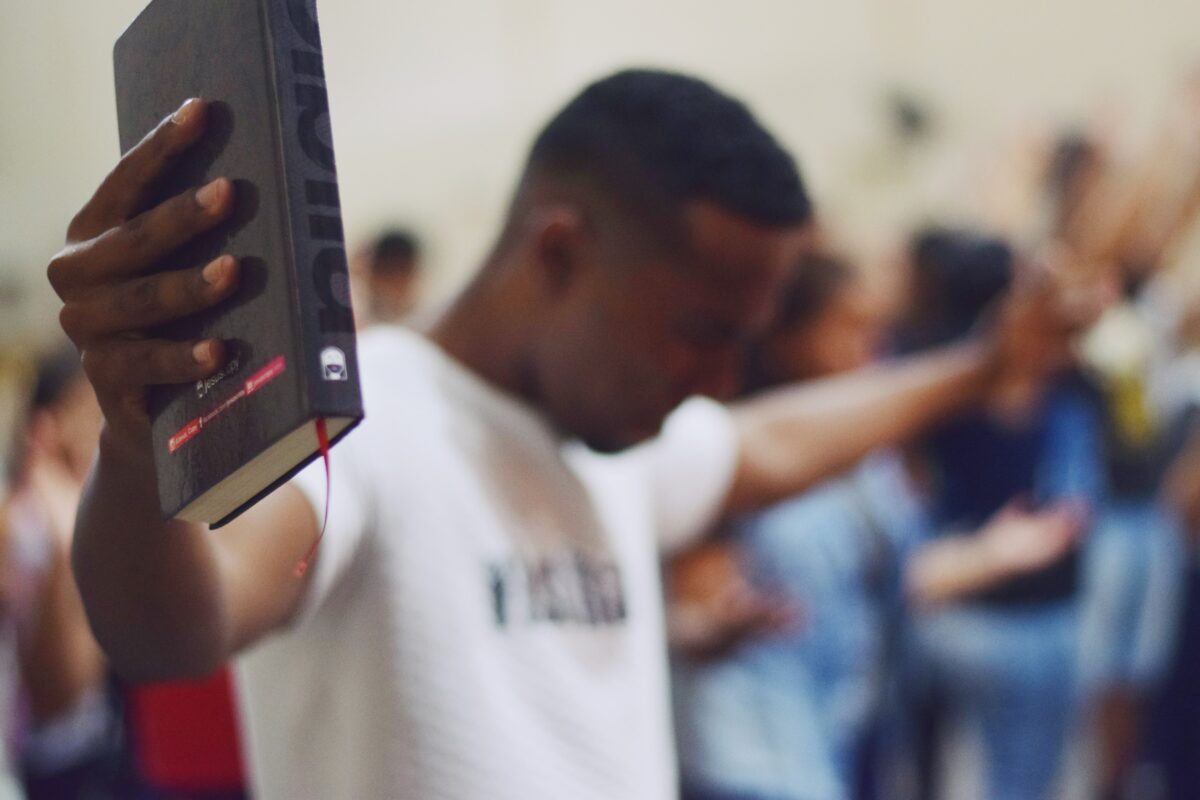
 By Tim Sitterley, Regional Director, US West
By Tim Sitterley, Regional Director, US West


 Mapping Your Neighborhood: Dishon Mills – Church Planter, Charlotte, NC
Mapping Your Neighborhood: Dishon Mills – Church Planter, Charlotte, NC Making Friends in Your Neighborhood: Tamar Gray – Pastor, Cleveland, OH
Making Friends in Your Neighborhood: Tamar Gray – Pastor, Cleveland, OH Role of the Love Avenue Champion: Terri Westerhaus – Love Avenue Champion, Cincinnati, OH
Role of the Love Avenue Champion: Terri Westerhaus – Love Avenue Champion, Cincinnati, OH By Michael Morrison, President Grace Communion Seminary
By Michael Morrison, President Grace Communion Seminary
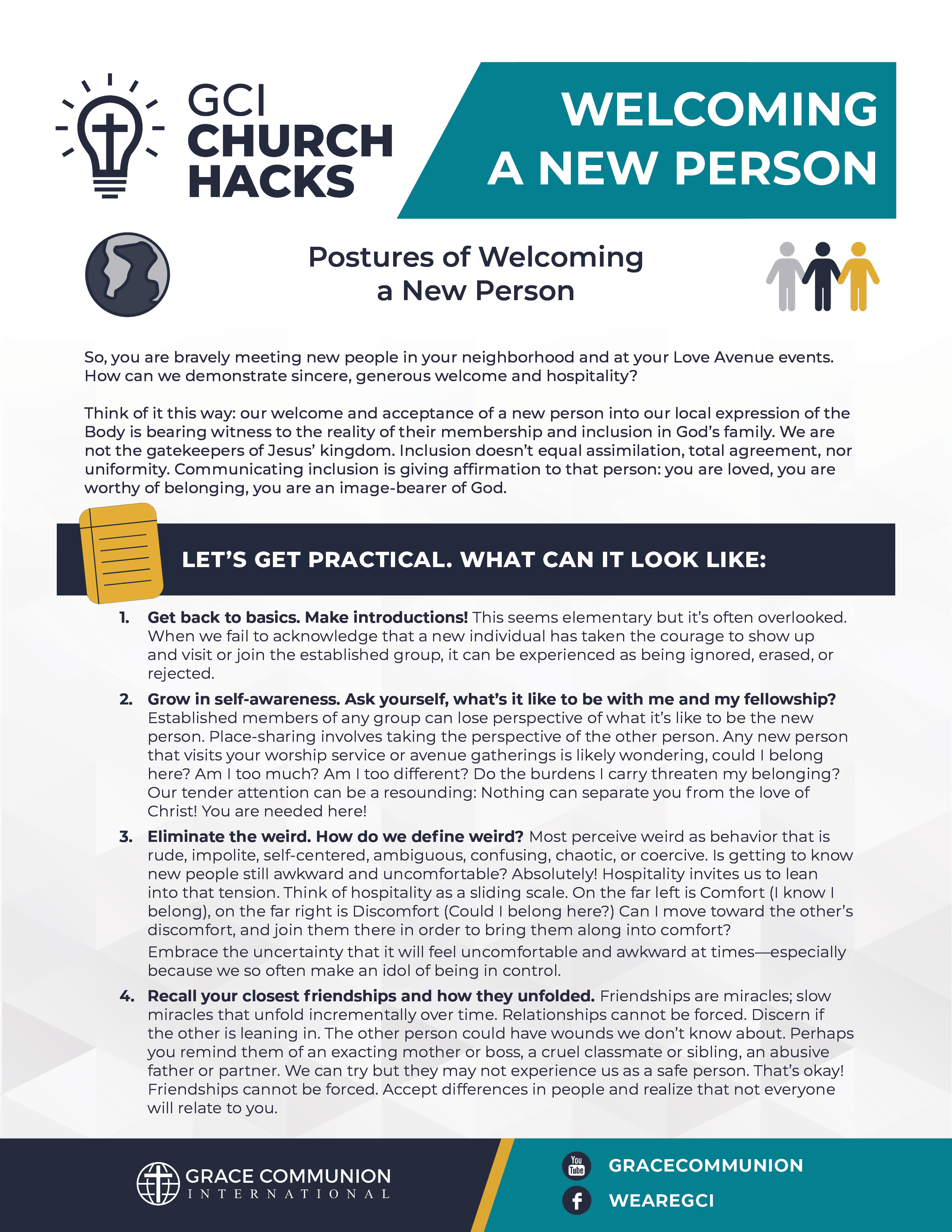
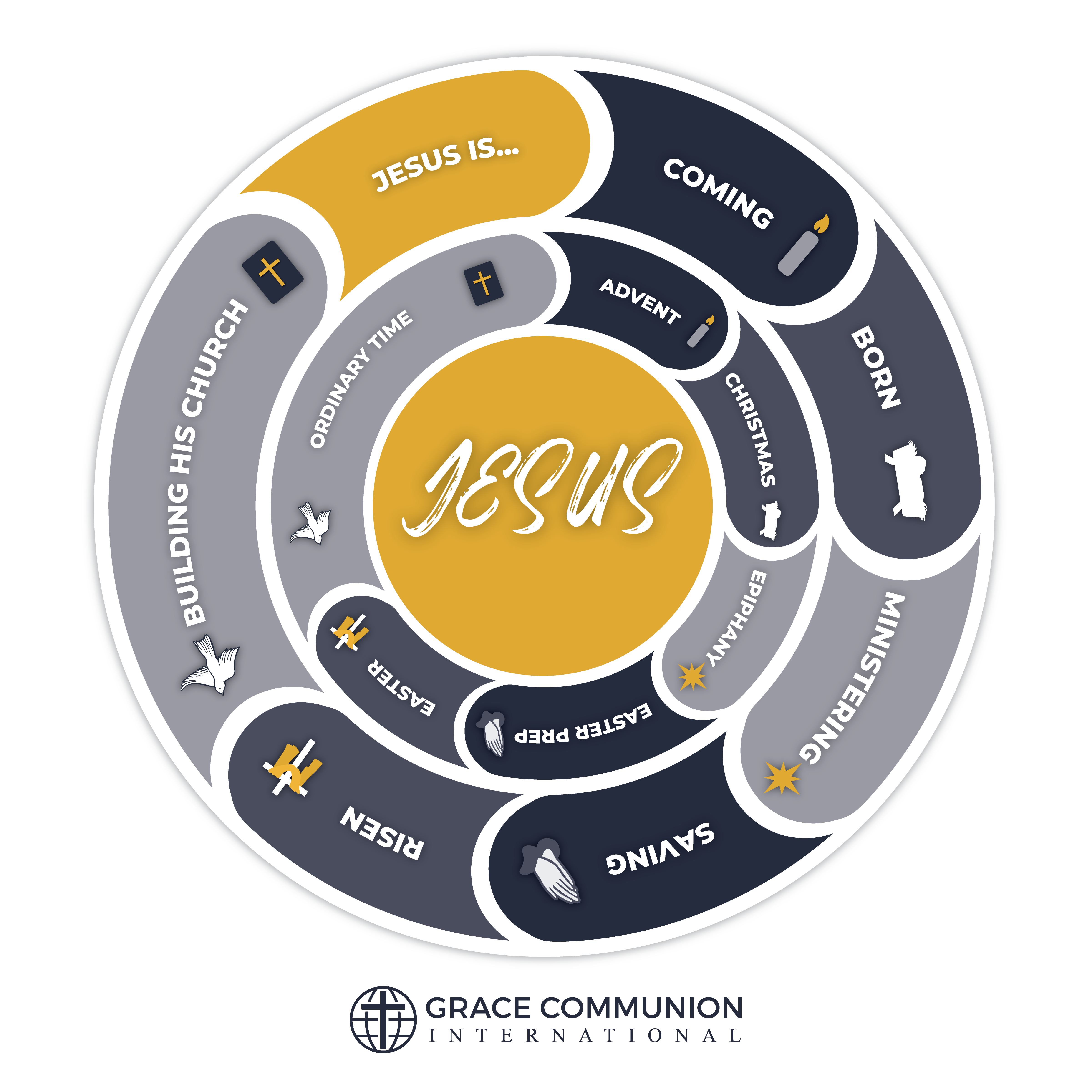
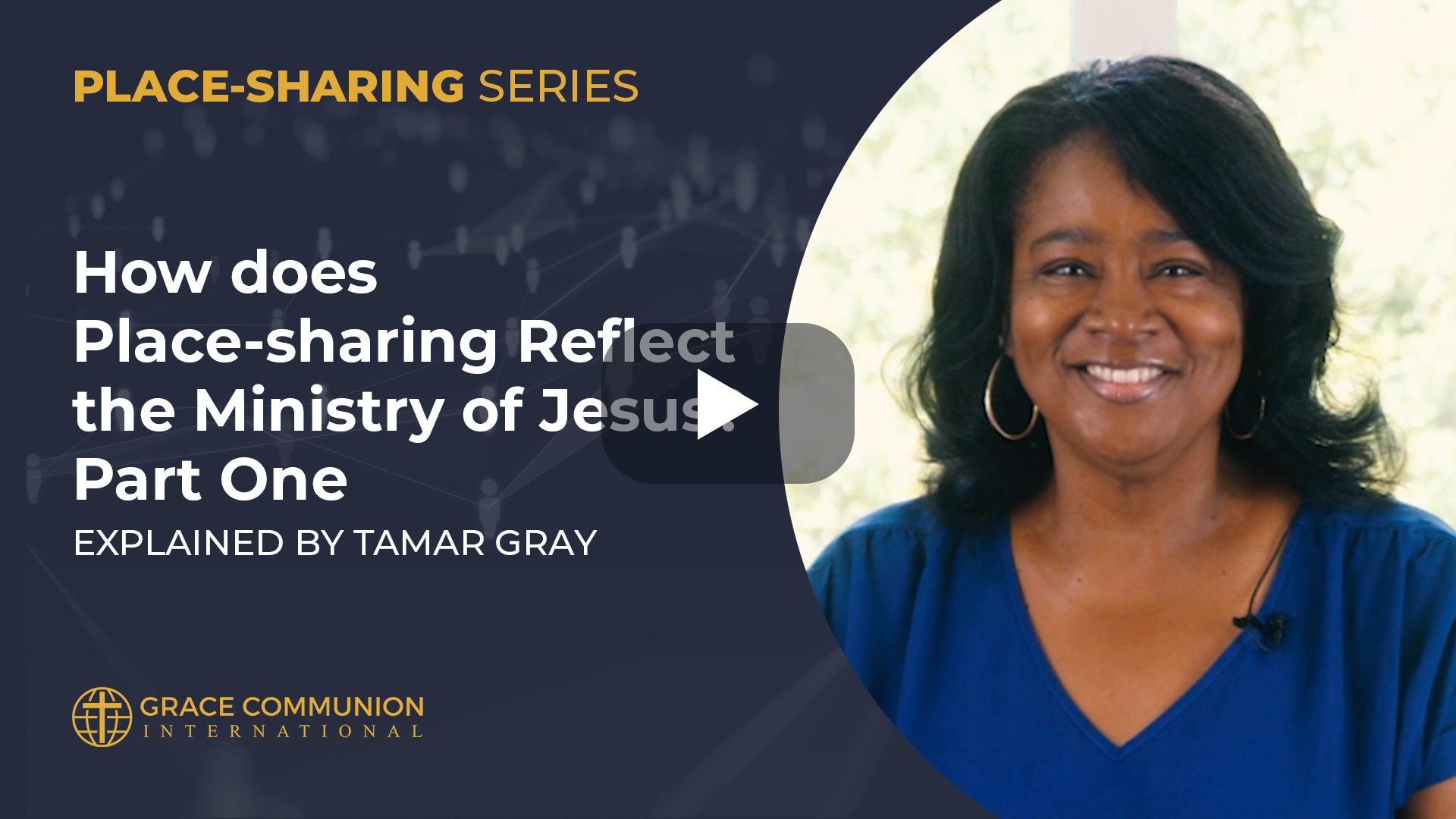
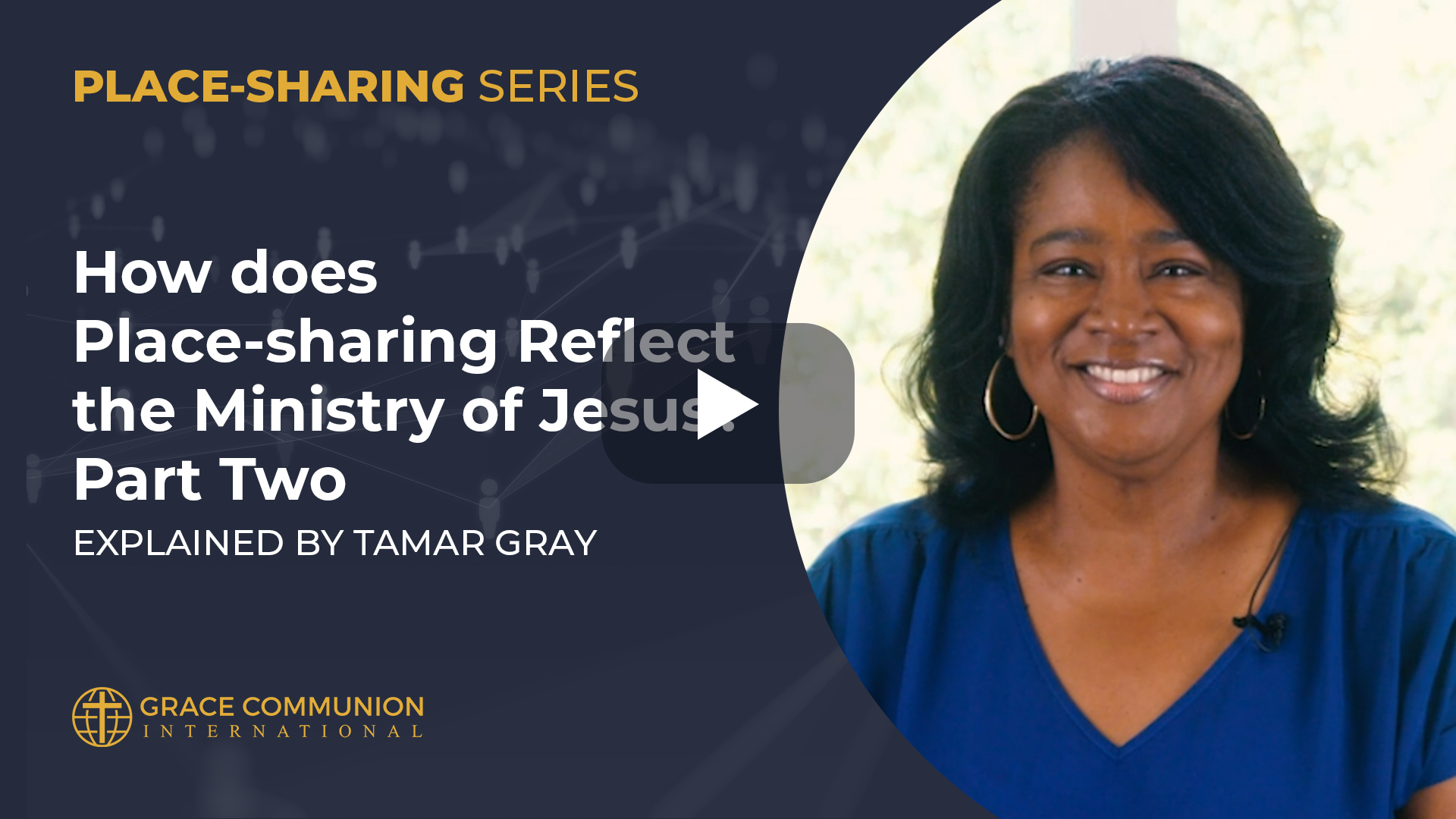
 “We can make sure that we have representation in our images. We can make sure we have a wheelchair ramp, that we are using microphones for hearing impairment. We can do a lot of things to be welcoming in our gathering, just kind of surface welcoming. But I really think that the healing that we’re promised and that we can participate in, it comes from these deep connections that we make — the way that we bear the image of God to one another and the way that we reflect his acceptance and his love. I think you could actually have a lot of concrete things in place and have somebody attend and still not feel seen or feel connection.”
“We can make sure that we have representation in our images. We can make sure we have a wheelchair ramp, that we are using microphones for hearing impairment. We can do a lot of things to be welcoming in our gathering, just kind of surface welcoming. But I really think that the healing that we’re promised and that we can participate in, it comes from these deep connections that we make — the way that we bear the image of God to one another and the way that we reflect his acceptance and his love. I think you could actually have a lot of concrete things in place and have somebody attend and still not feel seen or feel connection.”
